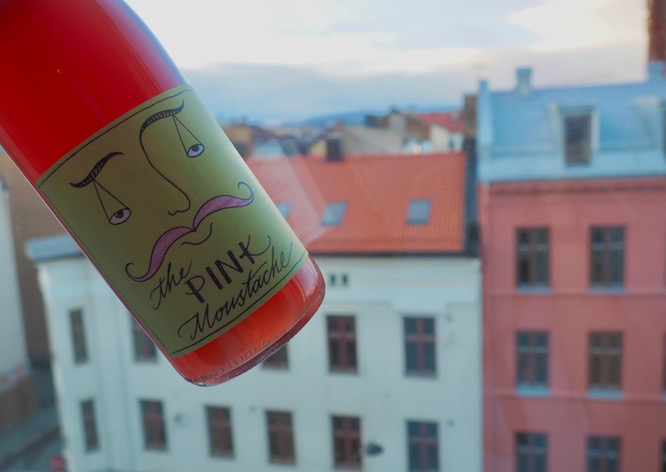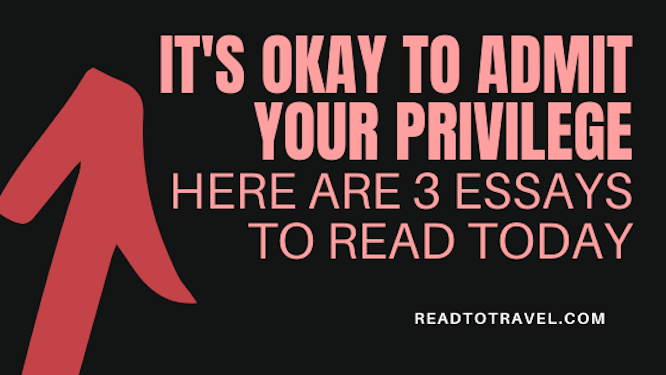Quarantine Reading List Part Two


About a month ago I published my quarantine reading list to share the books I read during the first four weeks of quarantine in Norway. It was part one of an uncertain number since I did not know how long we would be stuck inside.
Though the government still recommends social distancing, normal life has been easing its way back. Restaurants have capacity limits and seating distances while businesses have returned with reduced hours as they navigate paying their staff full time again.
Summer is approaching. On sunny days, which is nearly every day, the parks are full of groups imbibing on blankets about a meter from other groups imbibing on blankets. In general, I still feel the need to social distance and this quarantine has made me rethink how much I touch items at the store that I might not intend to buy or how close I stand to a stranger.
There’s no doubt in my mind that I should always be reading more books! Quarantine has been a fantastic way for me to put reading before most other things because of all the time spent at home. Without further ado here are seven books to read while in quarantine (and I must say, I truly enjoyed this batch)!
A History of the World in 6 Glasses by Tom Standage (4/5)
Goodreads: Throughout human history, certain drinks have done much more than just quench thirst. As Tom Standage relates with authority and charm, six of them have had a surprisingly pervasive influence on the course of history, becoming the defining drink during a pivotal historical period.
A History of the World in 6 Glasses tells the story of humanity from the Stone Age to the 21st century through the lens of beer, wine, spirits, coffee, tea, and cola. Beer was first made in the Fertile Crescent and by 3000 B.C.E. was so important to Mesopotamia and Egypt that it was used to pay wages. In ancient Greece wine became the main export of her vast seaborne trade, helping spread Greek culture abroad. Spirits such as brandy and rum fueled the Age of Exploration, fortifying seamen on long voyages and oiling the pernicious slave trade. Although coffee originated in the Arab world, it stoked revolutionary thought in Europe during the Age of Reason, when coffeehouses became centers of intellectual exchange. And hundreds of years after the Chinese began drinking tea, it became especially popular in Britain, with far-reaching effects on British foreign policy. Finally, though carbonated drinks were invented in 18th-century Europe they became a 20th-century phenomenon, and Coca-Cola in particular is the leading symbol of globalization.
For Tom Standage, each drink is a kind of technology, a catalyst for advancing culture by which he demonstrates the intricate interplay of different civilizations. You may never look at your favorite drink the same way again.

Moneyball: The Art of Winning an Unfair Game by Michael Lewis (5/5)
Goodreads: Billy Beane, general manager of MLB’s Oakland A’s and protagonist of Michael Lewis’s Moneyball, had a problem: how to win in the Major Leagues with a budget that’s smaller than that of nearly every other team. Conventional wisdom long held that big name, highly athletic hitters and young pitchers with rocket arms were the ticket to success. But Beane and his staff, buoyed by massive amounts of carefully interpreted statistical data, believed that wins could be had by more affordable methods such as hitters with high on-base percentage and pitchers who get lots of ground outs. Given this information and a tight budget, Beane defied tradition and his own scouting department to build winning teams of young affordable players and inexpensive castoff veterans.
Lewis was in the room with the A’s top management as they spent the summer of 2002 adding and subtracting players and he provides outstanding play-by-play. In the June player draft, Beane acquired nearly every prospect he coveted (few of whom were coveted by other teams) and at the July trading deadline he engaged in a tense battle of nerves to acquire a lefty reliever. Besides being one of the most insider accounts ever written about baseball, Moneyball is populated with fascinating characters. We meet Jeremy Brown, an overweight college catcher who most teams project to be a 15th round draft pick (Beane takes him in the first). Sidearm pitcher Chad Bradford is plucked from the White Sox triple-A club to be a key set-up man and catcher Scott Hatteberg is rebuilt as a first baseman. But the most interesting character is Beane himself. A speedy athletic can’t-miss prospect who somehow missed, Beane reinvents himself as a front-office guru, relying on players completely unlike, say, Billy Beane. Lewis, one of the top nonfiction writers of his era (Liar’s Poker, The New New Thing), offers highly accessible explanations of baseball stats and his roadmap of Beane’s economic approach makes Moneyball an appealing reading experience for business people and sports fans alike. –John Moe

The Master and Margarita by Mikhail Bulgakov (5/5)
Goodreads: An audacious revision of the stories of Faust and Pontius Pilate, The Master and Margarita is recognized as one of the essential classics of modern Russian literature. The novel’s vision of Soviet life in the 1930s is so ferociously accurate that it could not be published during its author’s lifetime and appeared only in a censored edition in the 1960s. Its truths are so enduring that its language has become part of the common Russian speech.
One hot spring, the devil arrives in Moscow, accompanied by a retinue that includes a beautiful naked witch and an immense talking black cat with a fondness for chess and vodka. The visitors quickly wreak havoc in a city that refuses to believe in either God or Satan. But they also bring peace to two unhappy Muscovites: one is the Master, a writer pilloried for daring to write a novel about Christ and Pontius Pilate; the other is Margarita, who loves the Master so deeply that she is willing literally to go to hell for him.
Esme’s Wish by Elizabeth Foster (3/5)
Goodreads: When fifteen-year-old Esme Silver objects at her father’s wedding, her protest is dismissed as the action of a stubborn, selfish teenager. Everyone else has accepted the loss of Esme’s mother, Ariane – so why can’t she?
But Esme is suspicious. She is sure that others are covering up the real reason for her mother’s disappearance – that ‘lost at sea’ is code for something more terrible, something she has a right to know.
After Esme is accidentally swept into the enchanted world of Aeolia, the truth begins to unfold. With her newfound friends, Daniel and Lillian, Esme retraces her mother’s steps in the glittering canal city of Esperance, untangling the threads of Ariane’s double life. But the more Esme discovers about her mother, the more she questions whether she really knew her at all.

Man in the High Castle by Philip K. Dick (3.5/5)
Goodreads: It’s America in 1962. Slavery is legal once again. The few Jews who still survive hide under assumed names. In San Francisco, the I Ching is as common as the Yellow Pages. All because some twenty years earlier the United States lost a war — and is now occupied by Nazi Germany and Japan.
This harrowing, Hugo Award-winning novel is the work that established Philip K. Dick as an innovator in science fiction while breaking the barrier between science fiction and the serious novel of ideas. In it Dick offers a haunting vision of history as a nightmare from which it may just be possible to wake.
Esme’s Gift by Elizabeth Foster (3.5/5)
Goodreads: Terror was within. Terror was without. Like her mother, she was at the water’s mercy.
In the enchanted world of Aeolia, fifteen-year-old Esme Silver is faced with her hardest task yet. She must master her unruly Gift – the power to observe the past – and uncover the secrets she needs to save her mother, Ariane.
In between attending school in the beguiling canal city of Esperance, Esme and her friends – old and new – travel far and wide across Aeolia, gathering the ingredients for a potent magical elixir.
Their journey takes them to volcanic isles, sunken ruins and snowy eyries, spectacular places fraught with danger, where they must confront their deepest fears and find hope in the darkest of places.

Eleanor Oliphant is Completely Fine by Gail Honeyman (5/5)
Goodreads: Meet Eleanor Oliphant: she struggles with appropriate social skills and tends to say exactly what she’s thinking. Nothing is missing in her carefully timetabled life of avoiding unnecessary human contact, where weekends are punctuated by frozen pizza, vodka, and phone chats with Mummy.
But everything changes when Eleanor meets Raymond, the bumbling and deeply unhygienic IT guy from her office. When she and Raymond together save Sammy, an elderly gentleman who has fallen, the three rescue one another from the lives of isolation that they had been living. Ultimately, it is Raymond’s big heart that will help Eleanor find the way to repair her own profoundly damaged one. If she does, she’ll learn that she, too, is capable of finding friendship—and even love—after all.
*This blog post contains affiliate links, meaning if you purchase anything on Amazon after clicking my link I’ll receive a small commission at no additional price to you.*

Snapshots of Oslo
Older post












